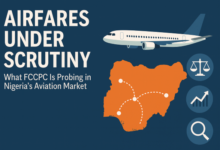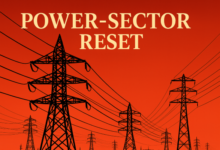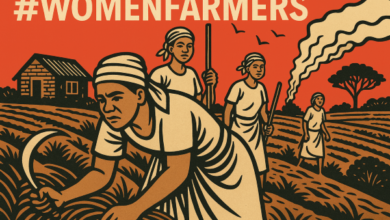DBN Hits ₦1trn in MSME Finance, 62% to Women

Yola — The Development Bank of Nigeria (DBN) says it has crossed ₦1 trillion in MSME financing since 2015, with women accounting for 62% of beneficiaries. The disclosure comes alongside a gender-inclusion programme training 200 women across Adamawa’s 21 LGAs—a signal that capital + capability is now DBN’s twin-track model for impact.
Nigeria’s growth thesis runs through its 12–40 million MSMEs. But the bottleneck has never been just money; it’s money that meets capability—formalisation, product standards, market access, and cash-flow discipline. DBN’s latest marker—₦1 trillion disbursed since inception—matters because it is gender-tilted (62% women) and paired with practical training aimed at moving entrepreneurs from financial exclusion to inclusion.
At a capacity session in Yola, DBN (represented by Idris Salihu, Head of Corporate Services) framed the programme as finance plus know-how: credit pathways for micro and small firms, plus hands-on modules delivered with the Organisation for Environmental, Agricultural and Health Development (OEAHD). The theme—“Empowering Women Through Entrepreneurship for Economic Inclusion”—anchors a curriculum spanning agri-processing, environmental sustainability, basic health services, and business management.
DBN says a monitoring & evaluation (M&E) framework will track post-training outcomes: registration and formalisation, revenue growth, jobs created, repayment behaviour, and access to follow-on finance. This is critical—development finance only compounds when capacity building reduces risk and data feedback sharpens future lending.
OEAHD’s Tabitha Sallah calls the effort an “investment in the future,” while Adamawa’s Commissioner for Women Affairs, Neido Kofulto, urges participants to deploy skills immediately. A beneficiary, Christiana Filibus, highlights guidance on CAC, NAFDAC, BOI processes—exactly the compliance spine that unlocks retail shelf space, institutional buyers, and export readiness.
Why This Matters
- Gender Lens, Real Numbers: A 62% female share is not a CSR flourish—it is portfolio strategy. Women-led MSMEs show stronger repayment discipline and household multiplier effects (education, health, nutrition).
- Capital + Capability = Bankability: Training tied to formalisation, standards and bookkeeping reduces credit risk, enabling cheaper follow-on loans and a lower loss-given-default profile.
- Local Multiplier: Adamawa’s sector mix—agri-value chains, services, petty trade—benefits from small-ticket working capital and equipment finance, boosting household incomes and local tax bases.
- Inclusion Infrastructure: As beneficiaries formalise, they create data trails (sales, taxes, certifications) that improve credit scoring and supply-chain finance eligibility.
What Good Execution Looks Like (12-Month Scorecard)
- Formalisation Rate: % of trainees completing CAC registration, obtaining TIN, and opening business bank accounts.
- Standards & Licensing: NAFDAC and relevant certifications achieved; % of products moving from informal to retail-ready.
- Revenue & Jobs: Median increase in monthly sales and FTE/seasonal jobs created per enterprise.
- Credit Uptake & Repayment: # of women accessing DBN-on-lending through PFIs; PAR30 and on-time repayment rates.
- Market Access: # of firms entering institutional/retail supply chains or securing purchase orders.
Policy & Market Signals to Watch
- De-risking for PFIs: Partial guarantees and performance-based incentives that nudge banks and MFIs deeper into women-led micro and small segments.
- Blended Finance: Grants/first-loss capital that crowd in private lenders and impact investors for equipment and expansion.
- Digital Rails: E-invoicing, merchant IDs, and micro-ERP tools that tighten cash-flow visibility for credit scoring.
- Export Pathways: For agri-processors, targeted support on packaging, labelling, traceability and AfCFTA rules of origin.
By the Numbers (at a glance)
- ₦1 trillion+ cumulative MSME disbursement since 2015
- 62% of funding to women
- 200 women trained across 21 LGAs (Adamawa) in the current cohort
- Focus: Financial inclusion, entrepreneurship skills, formalisation, compliance
BRANDECONOMY Take
DBN’s ₦1trn milestone MSMEs financing is meaningful because it’s gender-weighted and capability-linked. That’s where development finance outperforms simple credit lines—risk falls, repayment strengthens, incomes rise. The next unlock is scale with discipline: keep the training tight, the M&E honest, and the PFIs incentivised to price loans on performance, not prejudice.
Bottom line: Capital creates opportunity; capability converts it. DBN’s twin-track model is the right playbook for turning women-led MSMEs into Nigeria’s most reliable growth engine.










